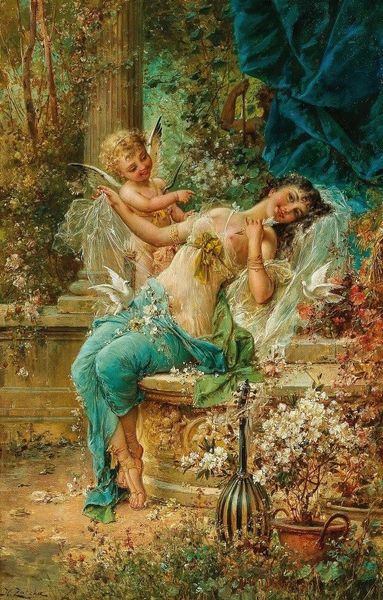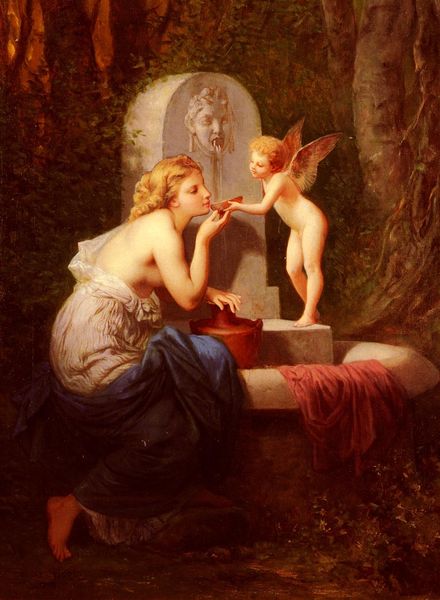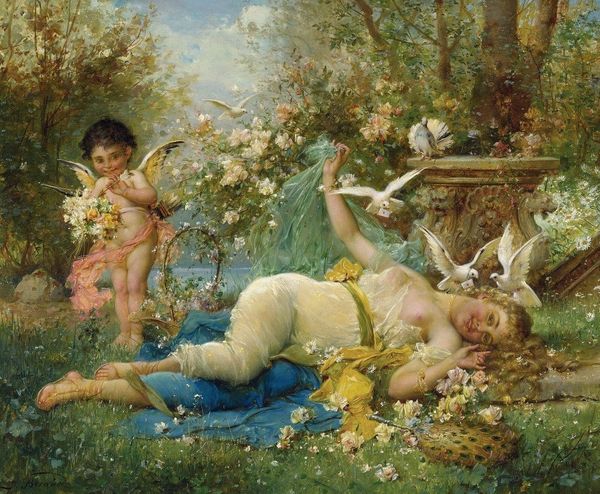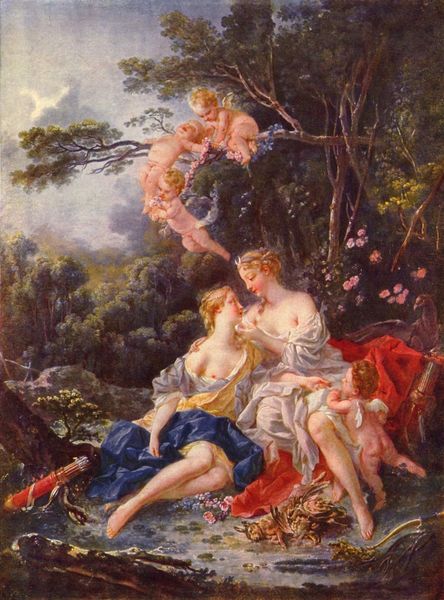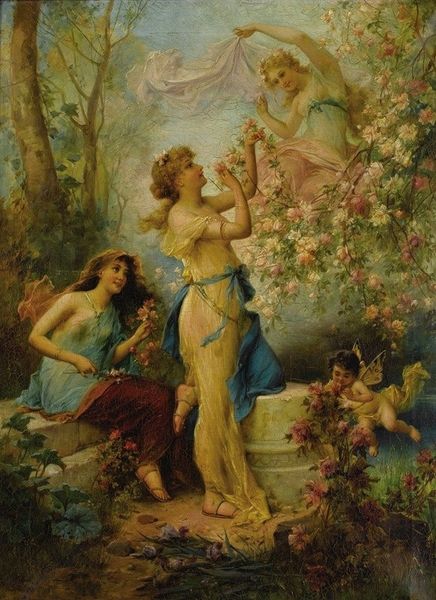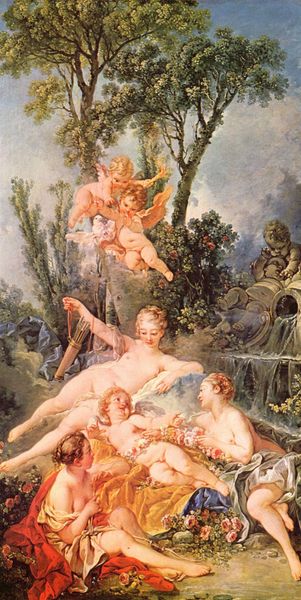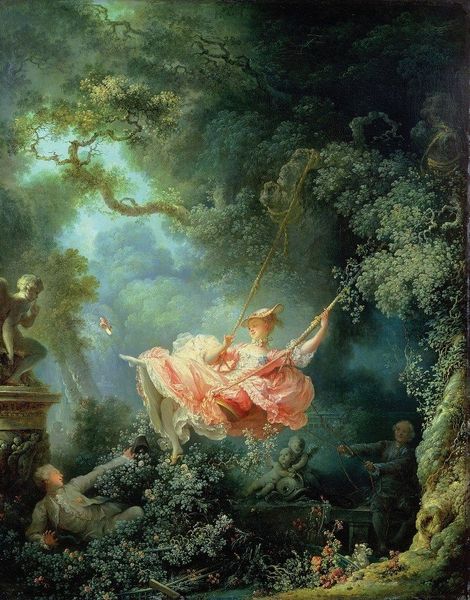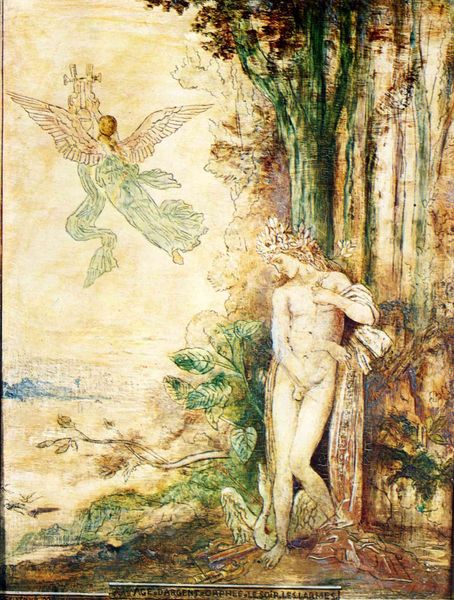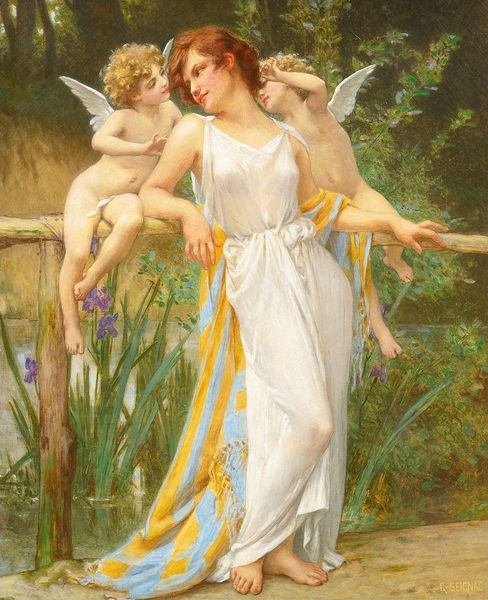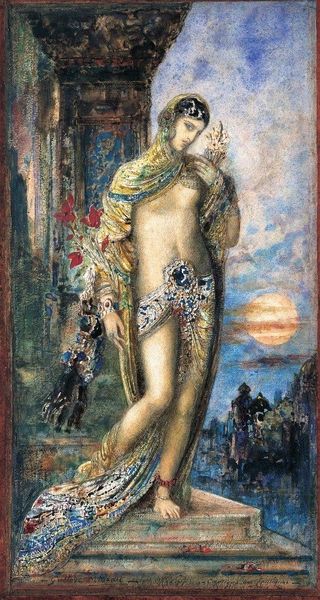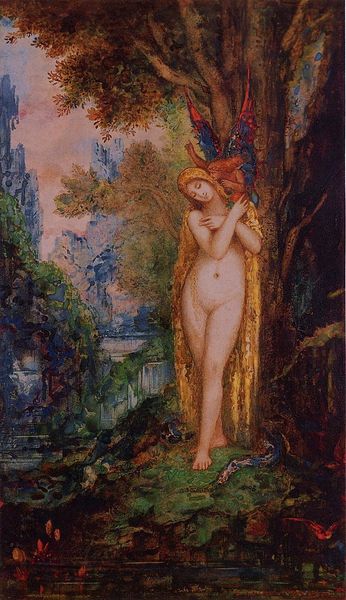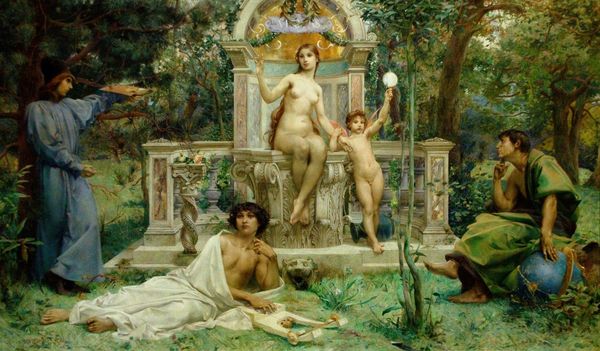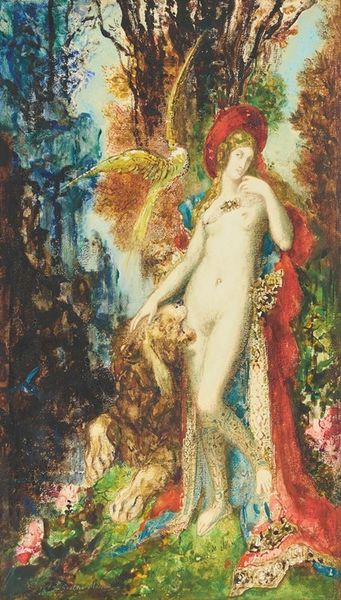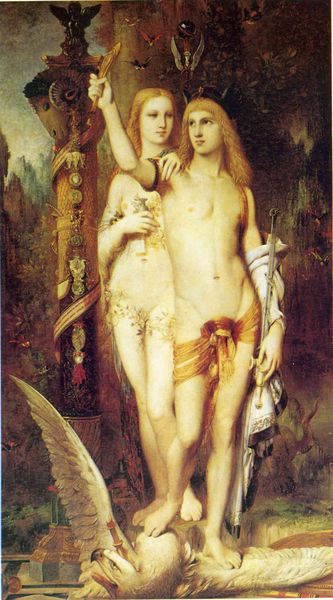
oil-paint
#
gouache
#
allegory
#
fantasy art
#
oil-paint
#
fantasy-art
#
figuration
#
romanticism
#
mythology
#
nude
#
watercolor
Copyright: Public Domain: Artvee
Editor: This painting is titled "Cupid" by Hans Zatzka and appears to be an oil painting. I find the scene quite fanciful, almost dreamlike, with the idealized figures and lush garden setting. What do you see in this piece, and how does it resonate with broader cultural themes? Curator: What I see is a manifestation of idealized femininity and the commodification of love, particularly through the lens of late 19th/early 20th-century European patriarchy. Zatzka's work, though beautiful on the surface, operates within a system where the female nude is frequently a symbol of passive beauty, designed for male consumption. Even Cupid himself, a symbol of desire, seems to perpetuate this gaze. The fantasy landscape functions almost as a retreat from any kind of social awareness. Does this imagery, perhaps unintentionally, reinforce unequal power dynamics? Editor: That’s a perspective I hadn’t considered. I initially saw it as a celebration of beauty, but framing it within a power dynamic changes things. It’s interesting how the garden setting becomes less innocent and more like a constructed space, almost a stage. Curator: Precisely. Consider the historical context. These works emerged during a time of immense social change, with women fighting for suffrage and greater autonomy. Yet, popular art often presented them as ethereal beings disconnected from the real world. How might this contrast contribute to our understanding of contemporary social movements and struggles for visibility and agency, where people reclaim their narratives and resist objectification? Editor: I hadn't thought of it that way, but I see what you mean. The painting serves as a historical marker of the ideals and constraints of its time. Thank you. Curator: My pleasure. It is an excellent reminder to examine art through different socio-political lenses, so to avoid reinforcing the existing, and frequently misguided, narratives.
Comments
No comments
Be the first to comment and join the conversation on the ultimate creative platform.
